New Zealand will drop its final border ban in July - to let the rest of the world in

May 12, 2022 • 3 min read
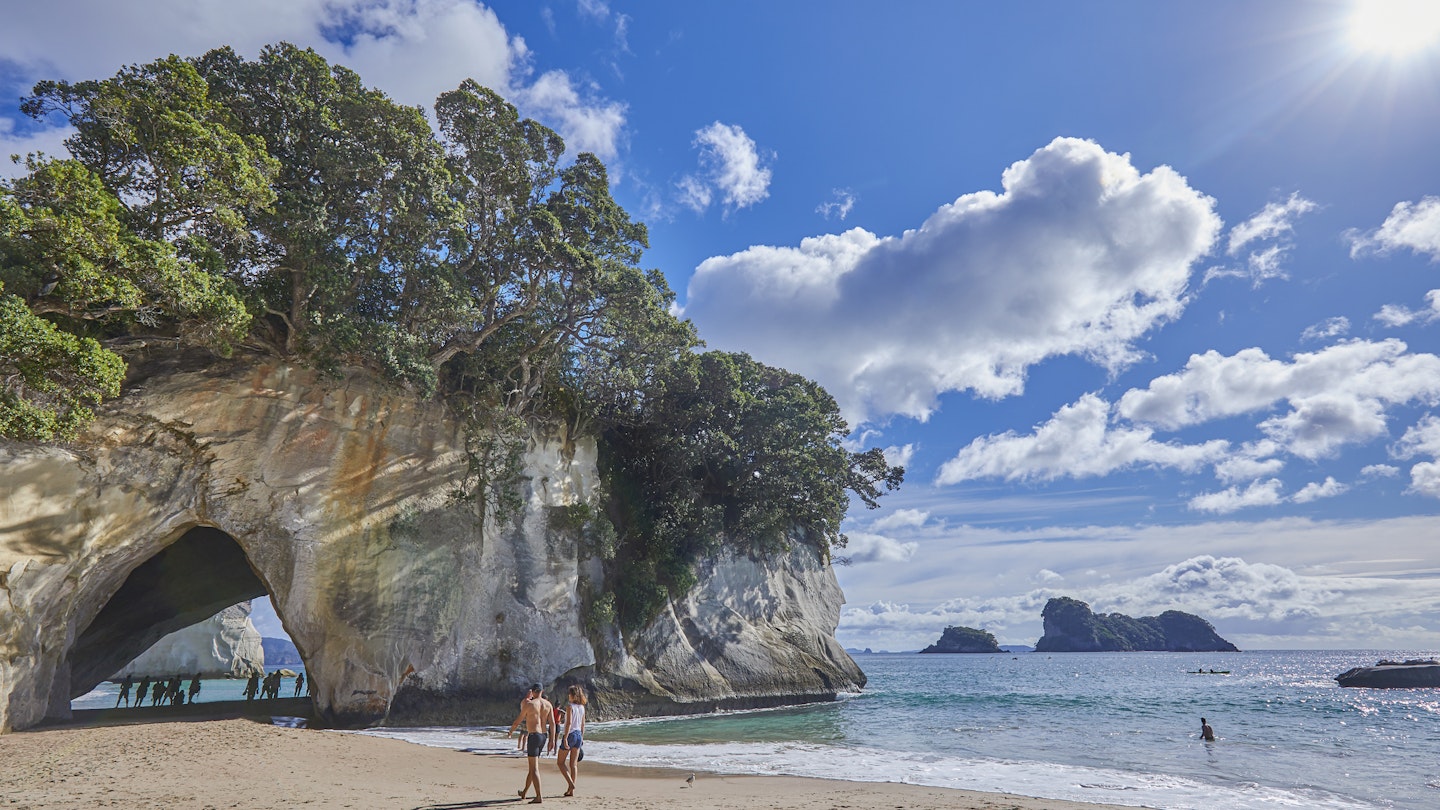
New Zealand will drop its remaining travel ban on July 31 © Shutterstock
After opening its borders to some 60 visa-waiver nations last Monday, New Zealand announced that it would drop its remaining border bans and open to the rest of the world on July 31, three months ahead of schedule.
The country had taken steps in recent months to relax border controls, like allowing in New Zealanders living abroad, as well as visitors from neighboring Australia. May 2 marked one of the biggest milestones in New Zealand's phased reopening plan yet when it pulled the doors open for international tourists from visa-waiver nations like the USA, the UK, Canada, Germany, South Korea, Japan, Singapore, and others
But now the final countdown is on as the government announced this week that on July 31, at 11:59pm, it will take the last step in its reopening plan by allowing the rest of the world in, that is tourists from countries that don't have visa-free agreements with New Zealand.
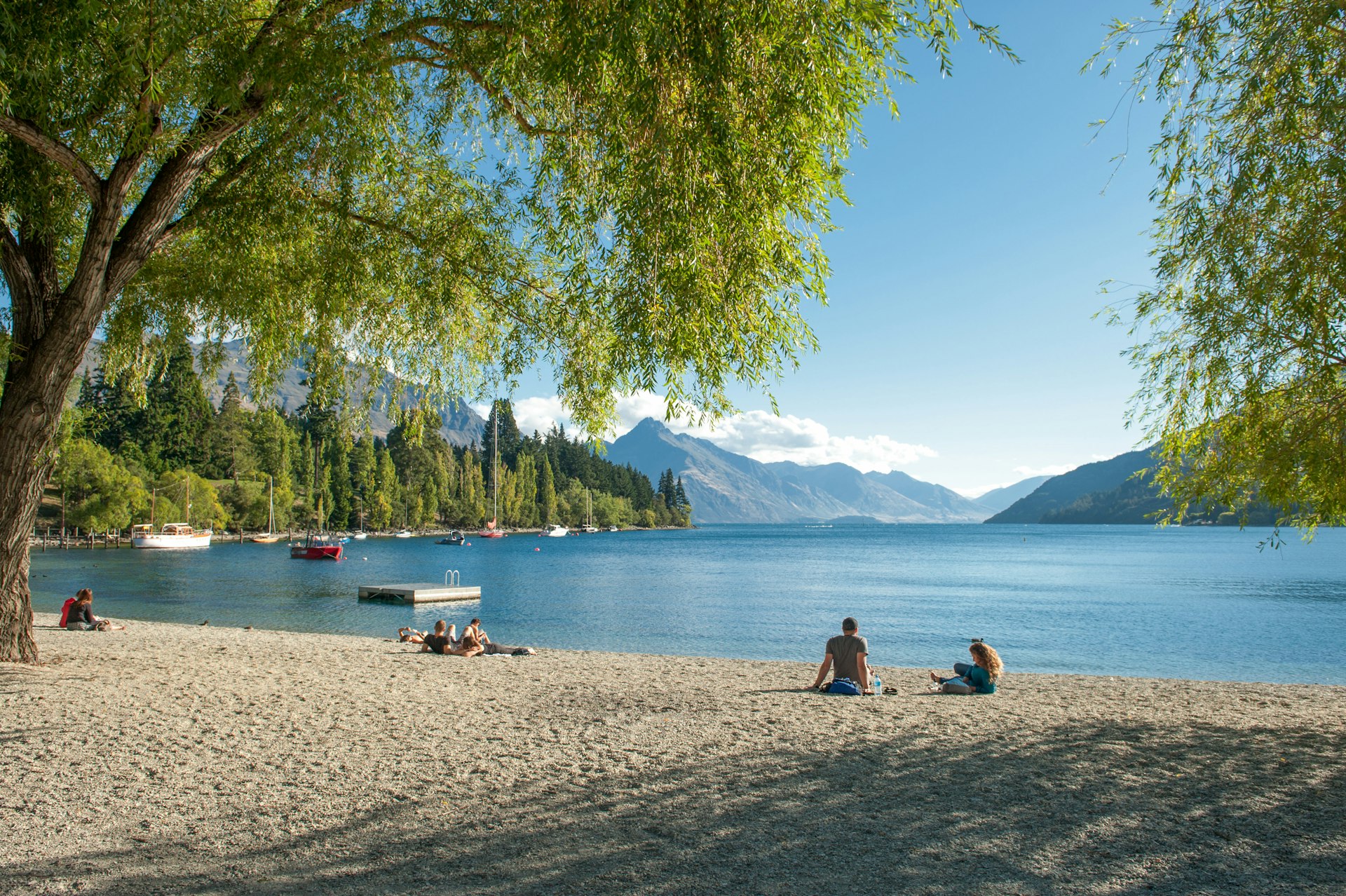
New Zealand's prime minister Jacinda Arden said the decision was made to bring the reopening date forward from October to July 31 in order to boost the tourism industry now that vaccine rates are high and average daily infection rates are stabilizing.
"This will be welcome news for families, businesses and our migrant communities," she said of the early reopening plan. "It also provides certainty and good preparation time for airlines and cruise ship companies planning a return to New Zealand in the peak spring and summer seasons."
According to the tourism ministry international flight searches to New Zealand are running 19% higher than in pre-COVID times and several major airlines are restarting and adding routes to meet the predicted spike in demand over the coming months, including the first ever direct flight between New Zealand and New York City .
“Later this year major international airlines like Emirates, Air Canada, Malaysian Airlines, Hawaiian Airlines, LATAM Airlines and Air Tahiti Nui are restarting routes," tourism minister Stuart Nash said. "Air NZ is also adding long haul routes from San Francisco, Honolulu, Houston, New York and Chicago."

New Zealand entry rules: tests and vaccination
Vaccinated arrivals no longer have to self-isolate on their arrival, but anyone over the age of two will continue to test for COVID-19.
Travelers need to take a pre-departure test . Upon landing in New Zealand, they'll be given three rapid antigen tests at the airport to take home. One for use on day one of their arrival, one for use on day five or six, with one extra, the third test, for backup.
Arrivals who return a positive result will be required to take a PCR test at a community testing station so that New Zealand can keep tabs on any emerging variants and isolate cases as needed.
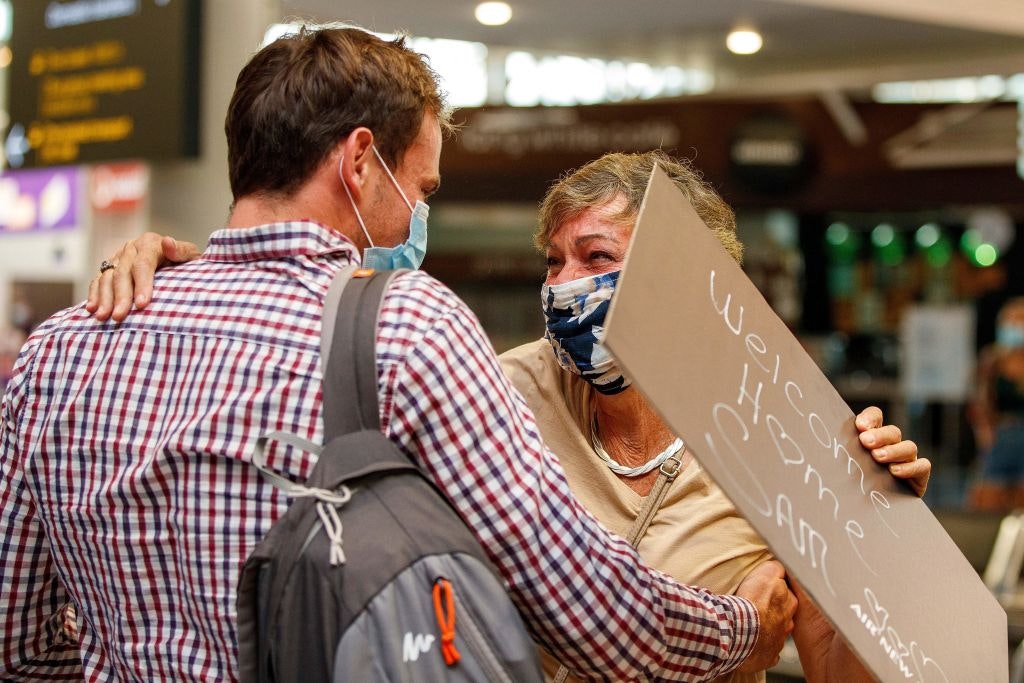
Those who are not fully vaccinated will be required to undergo mandatory quarantine at a government-run center.
To be considered fully vaccinated , arrivals must have completed the primary course of a vaccine schedule. That generally means they've received at least two doses, or in the case of the Johnson & Johnson vaccine, one dose. A booster is not required for entry at this stage.
The further phased opening up of New Zealand’s borders will continue in October , when the country will fully reopen to visitors from anywhere in the world and normal visa processing will resume.
This article was first published Aug 12, 2021 and updated May 12, 2022.
Explore related stories
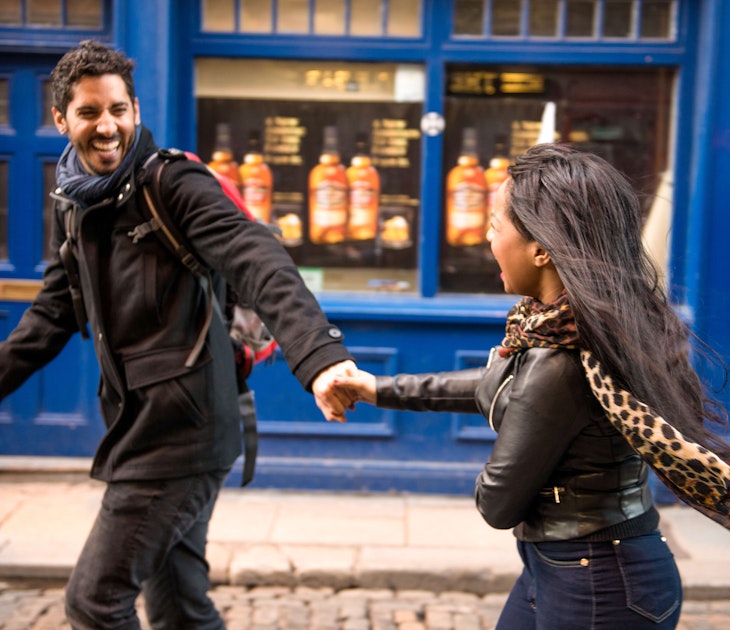
Destination Practicalities
Mar 30, 2024 • 4 min read
Who wouldn't jump at the chance to visit the Emerald Isle? Here’s how to check if you need a visa before setting off on your Irish adventure.
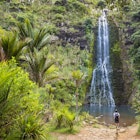
Mar 15, 2024 • 18 min read
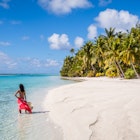
Jan 24, 2024 • 8 min read

Jan 17, 2024 • 8 min read

Jan 7, 2024 • 3 min read

Jan 5, 2024 • 20 min read
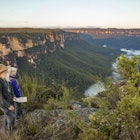
Nov 27, 2023 • 7 min read
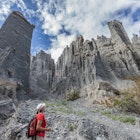
Nov 22, 2023 • 5 min read

Nov 17, 2023 • 10 min read

Oct 31, 2023 • 7 min read
- Search Please fill out this field.
- Manage Your Subscription
- Give a Gift Subscription
- Newsletters
- Sweepstakes
New Zealand Just Announced Its Border Reopening Plan — Here's What Tourists Need to Know
The country will fully reopen its borders to international travelers in April of next year.
:max_bytes(150000):strip_icc():format(webp)/alison-fox-author-pic-15f25761041b477aaf424ceca6618580.jpg)
New Zealand laid out a phased reopening plan on Wednesday announcing the country will fully reopen its borders to international travelers in April of next year.
Starting on Jan. 16, 2022, the country will allow fully vaccinated New Zealanders to return from Australia without a hotel quarantine. Travelers will still have to self-isolate for seven days.
Then on Feb. 13, the country will welcome fully vaccinated Kiwis from most other countries. And finally, on April 30, the country plans to start allowing all fully vaccinated travelers to enter, potentially staged by visa category.
"Closing our border was one of the first steps we took to keep our country safe from COVID-19 and it'll be the last thing we open up… We are making this announcement today to give families, businesses, visitors, and airline and airport companies certainty and time to prepare," Chris Hipkins, the country's minister for COVID-19 response, said in a statement . "It's very encouraging that as a country we are now in a position to move towards greater normality."
He added: "Some people and businesses want us to start to open up before Christmas, and that's understandable, but others want us to be more cautious. We acknowledge it's been tough but the end of heavily restricted travel is now in sight."
New Zealand has implemented one of the strictest COVID-19-related travel policies in the world and nearly all arrivals must quarantine for 14 days in a hotel. Arriving foreign nationals 18 and older are also required to be fully vaccinated to enter.
In October, Air New Zealand said it would require all international passengers 18 and older to be fully vaccinated before boarding an international flight starting on Feb. 1, 2022, becoming the latest carrier to announce a vaccine mandate for customers.
Currently, 77% of all Kiwis have received at least one dose of a COVID-19 vaccine and 71% have received two doses, according to the Ministry of Health .
Beyond the phased border reopening, the country will allow bars and restaurants to reopen in Auckland starting Dec. 2, moving even further away from the lockdown that gripped the city in August, The Associated Press reported .
Alison Fox is a contributing writer for Travel + Leisure. When she's not in New York City, she likes to spend her time at the beach or exploring new destinations and hopes to visit every country in the world. Follow her adventures on Instagram .
Related Articles
New Zealand prepares to ease borders: What will overseas travel look like in 2022?

Thomas Bywater
Share this article
Tomorrow a key announcement from the Prime Minister will reveal what our post-pandemic holidays could look like.
With some travel bubble exemptions, until now the official advice from MFAT has been not to travel abroad.
For eighteen months the Safe Travel website has had a large red reminder at the top of the page, reading: "Do not travel overseas at this time due to the COVID-19 pandemic."
That's not to say you can't, but there are few willing to take the chance.
In July, only around 140 New Zealanders returned from none-bubble countries and gave 'holiday' as their main purpose of travel.
New Zealand has used a combination of 'traffic lights', quarantine and hard border closures to make the prospect of overseas travel as safe as possible. It has also meant that the prospect of international travel is the reserve of the privileged few who can afford 14-days in MIQ and somehow find a space.
However there are a few signs that international travel may be back on the cards for many more Kiwis.
The Herald reported that a panel of experts has advised the government that we were almost ready to begin opening the borders.
The report suggested, once a sufficient number of the population have been fully vaccinated New Zealanders should be able to travel to low-risk destinations.
A key suggestion of the report chaired by Sir David Skegg, was that MIQ stay should be shortened to "five to seven days" for vaccinated travellers.
This should help free up more spaces in MIQ facilities, but also the prospect of a "holiday abroad" could incentivise more people to get vaccinated.
However after a year-and-a-half behind our borders, it is hard to say what the appetite is for international leisure travel.
New Zealand's travel restrictions have been among the strictest in the world.
Perhaps we could benefit from looking at how other countries with high vaccine roll out have approached the prospect of going on holiday again.
Here's how they have been handling overseas travel, overseas:
United Kingdom: Traffic lights and last minute flights
The UK was one of the first countries to adopt the traffic light system even early on in its vaccine roll-out. Currently with 69 per cent of the population having received at least one vaccine dose, the country has allowed a few more freedoms to its citizens via a traffic light system.
Those returning from a 'Green List' countries see few changes to pre-Covid travel. They are required to take PCR tests - both three days before and two days before travel.
However, returnees from Amber List countries must quarantine for 10 days - with Red List returnees having to spend these in MIQ facilities.
Simple in theory, however there have been several incidents in which holiday makers abroad have found themselves suddenly arriving on the quarantine list.
Fortnightly reviews have seen countries rise or lower in the risk ratings.
On 8 June a spike in local Covid cases in Portugal caught Brits off guard, when they were given just hours to get back home or face 10 days isolation.
USA: Prove it
While returning Americans are only required to provide negative covid tests on return, a growing number of countries are opening their borders to travellers with a "CDC-issued vaccination certificate".
Countries as broadly placed as Canada and Austria are now accepting vaccinated leisure travellers from the US. Having previously been a pariah state over high infection rates, the 167 million vaccinated travellers (50 per cent of the population) and their high-value travel plans seem to outweigh the risks.
This summer Europe re-opened to vaccinated Americans. Printed VAMS certificates and 'vaccine cards' seem a very low-tech solution to vaccine records and have been prone to forgery and black market scams.
However the US did not insist on managed isolation for returning travellers.
All arrivals at US airports have to present proof of a negative Covid 19 test within the past five days before boarding. The onus is put on the airlines to enforce the borders.
Israel: Vaccinated travellers pass GO, do not enter MIQ
One of the highest early vaccination rates in the world Israel has found another way to incentivise getting a jab: Vaccinated travellers returning to Israel do not have to isolate.
Like New Zealand, Israel has been practicing managed isolation at quarantine facilities for returnees, although there have been trials allowing residents to isolate at home.
Returnees must spend a minimum of 14 days in isolation with an option to shorten stays with negative test results.
However, travellers with a Green Pass "who have been vaccinated or have recovered in Israel," can enter the country directly if they do not travel from a "high risk" country.
This only applies to vaccinated travellers who are on the national Green Pass database. Israel is currently not accepting vaccination certificates from other countries.
They do, however, provide "serologic tests" to check the immunity of travellers vaccinated elsewhere, which may lead to Israel reopening to travellers from more destinations.
Australia: Hard border closure
Unlike New Zealand, our neighbours in Australia are required by law not to travel abroad.
On Australia's safe travel advice portal DFAT citizens are advised "a travel ban is in place."
This hard-edge approach has led to many complications, not only for those living there.
DFAT continues to advise that onward "international travel from Australia is only available if you are exempt or you have been granted an individual exemption".
During the transtasman travel bubble, this led to the situation that Australians in New Zealand discovered they could be breaking the law if they tried to fly abroad, even to countries like the Cook Islands, in New Zealand's safe travel area.
Recently, the reduction in number of arrival permits have led Australians abroad to feel "effectively exiled" from their own country.
Aussie expatriates are avoiding returning home as they fear they will not be able to return to their livelihoods.

Latest from Travel

Do you pee in the hotel pool? Mumsnet post sparks heated debate
'Loads of other people do so why not.'

Noumea airport in New Caledonia closed until Tuesday - Air New Zealand

I'm an expat in Italy - locals can spot tourists just from their walk

Taco kiosk with four-item menu wins inaugural Michelin star

The small-ship cruise line breaking the ice on luxury polar expeditions
- facebook-official
- youtube-play
- pinterest-circled
The Best Travel Guide to New Zealand 🌏 [2024]
Nz pocket guide is 10 years old. thank you for trusting us with your trip for over a decade, the complete travellers’ guide to new zealand.
Welcome to Aotearoa – or you more likely know it as New Zealand! You probably also already know that New Zealand is home to some of the world’s most stunning mountains, glaciers, fiords and more scenery, scenery, scenery. But how do you go about planning a trip to New Zealand? While we don’t want to toot our own horn, here at NZ Pocket Guide , we believe we are the best travel guide to New Zealand and you’ll probably agree once you’ve read this complete travellers’ guide to New Zealand, which will springboard you to NZPocketGuide.com’s thousands of tips and advice.
An Intro About New Zealand
Location : New Zealand is a country in the Oceania continent. It’s located in the South Pacific Ocean, about 1,500km (930 miles) east of Australia and around 1,000km (620 miles) south of the South Pacific Islands . See Where is New Zealand? for more information.
Size : 268,021km 2 (103483 mi 2 ) in total. It is approximately 1,600km (990mi) long and around 400km (250mi) at its widest point.
Climate : New Zealand has a diverse climate determined by the ocean, mountains and prevailing winds. The mean average temperatures are 10°C (50°F) on the South Island to 16°C (61°F) on the North Island. See The Guide to The New Zealand Climate or check out the “ When to Visit ” section below.
Population : 5 million. Learn more about New Zealand’s population here .
Languages : English, Maori and New Zealand Sign Language. Learn more about the New Zealand language in our guide .
Time zone : UTC/GMT+12.
How to Get to New Zealand
First things first, you’ll need to see if you are actually able to travel to New Zealand due to restrictions put in place at the borders after the COVID-19 outbreak. Visit covid19.govt.nz for the latest travel information.
Next, what is the best way to get to New Zealand? New Zealand can be accessed by flight or cruise ship. Considering you are probably here to plan a trip for more than just a day in New Zealand, let’s skip right to the most popular way to get to New Zealand; flights.
Direct flights to New Zealand can be found from the US , Canada , South America , Asia , Australia and the South Pacific Islands . Coming further afield from destinations such as in Europe and you’ll need to catch at least one connecting flight.
If you don’t have time to read through our Beginner’s Guide to Getting to New Zealand , here’s a quick rundown.
Flight Times to New Zealand
Argentina – 12h30min, Brazil – 15h30min, Canada – 16h30min, China – 13h30min, Denmark – 22h, Finland – 20h, France – 23h30min, Germany – 22h30min, Hong Kong – 11h, Israel – 32h, Italy – 22h30min, Japan – 11h, Korea – 12h, Malaysia – 11h, Netherlands – 22h30min, Philippines – 10h30min, Singapore – 10h30min, Sweden – 21h, Taiwan – 11h, United Kingdom – 22h30min, USA – 12h, Vietnam – 12h30min
Tips for Cheaper Airfares
Airfares for New Zealand depend on different factors: what time of year you choose to fly, how long in advance you book, where you’re flying from, what type of ticket you get, and the route you take.
The cheapest time to fly to New Zealand is during New Zealand’s spring, winter and autumn months (between July and November). Summer and particularly around Christmas is the most expensive time to fly to New Zealand.
It is also usually cheaper to fly at “inconvenient times” of the day such as late at night or during the early hours of the morning, as well as mid-week rather than on weekends. Having a flexible travel plan allows you to choose the cheapest flights. Check out How to Book a Cheap Flight to New Zealand and 5 Money-Saving Tips for Flying to New Zealand with Kids for more advice.
A Note on Customs Declarations
New Zealand has strict biosecurity measures at the border to stop unwanted pests and diseases from entering the country. Therefore, anyone arriving in New Zealand has to declare any “risk items” they have packed in their luggage – even common items like food and sports gear. Failing to declare a risk item may incur an instant NZ$400 fine! Be sure to read up on Arriving in New Zealand: Airport Customs, Biosecurity & the Arrival Process so you are prepared.
When to Visit New Zealand
New Zealand is in the Southern Hemisphere, meaning that seasons are at the opposite times of year compared to the Northern Hemisphere. The weather in New Zealand is temperate but changeable due to prevailing winds, the ocean and its mountains. In fact, the weather is so notoriously changeable that New Zealanders have a saying to describe their weather: “four seasons in a day”. In other words, you can experience sunshine, heat, rain, temperature drop and snow even in summer (well, snow is unlikely in summer – but you get the picture).
For all of the reasons above, we do not recommend planning your trip too much around the weather. Nevertheless, below is what you can typically expect in each season.
Summer (December to February)
Summer is the warmest time of year reaching highs of 25°C (77°F) . Expect finer days than during the rest of the year.
Autumn (March to May)
Autumn has milder temperatures between 6°C (43°F) and 20°C (68°F) . Weather patterns start to become more interchangeable with a few more rainy days than summer.
Winter (June to August)
Temperatures can be anywhere between -3°C (27°F) and 15°C (59°F) depending on which parts of the country you are in. Snow falls in alpine regions and rainfall is more frequent.
Spring (September to November)
Temperatures rise again during this shoulder season, where lows are 2°C (36°F) and highs are 17°C (63°F) . Expect a balance of fine and rainy days.
For more information on the climate, check out What is the Weather Like in New Zealand?
The Best Time to Visit New Zealand
Summer ( December to February ) is the most popular time to travel New Zealand for both international travellers and locals. While you can do most activities in summer under milder weather, things are more expensive, such as flights, tours and vehicle rentals. Attractions are busy while accommodations and transport book up quickly for the summer months.
The low season, i.e. winter ( June to August ) is the cheapest but coldest time to travel. Attractions are far less busy, but some tours like canyoning and white water rafting may be closed during winter. The exception to the low season rule is the ski resort towns, such as Queenstown , Wanaka and Ohakune .
Visiting in any of the shoulder seasons , i.e. from March to May and from September to November , brings warmer weather than winter along with more affordable travel deals than summer. These months tend to be the best time to visit New Zealand .
What to Pack for New Zealand
Don’t overpack! Just a large backpack or suitcase with a day pack per person (or per adult for families) is all you need for New Zealand. Bring versatile outfits that are good for exploring the outdoors and bring no more than a week’s worth of clothes, as laundry facilities are everywhere. New Zealand is a developed country so has plenty of shops and services should you need to buy anything while you’re travelling.
A Quick Packing List
The below packing list is an overview of our full New Zealand Packing List . Note that it’s just for one person.
- 1 Leggings/sweatpants/hiking pants
- 1 Shorts (summer)
- 1 Sweater/hoody/mid-layer
- 1 Hiking shoes
- 1 Flip-flops
- 1 Swimwear (suitable for watersports)
- 1 Thermal underlayer (top and/or bottoms)
- 1 Waterproof and windproof jacket
- 6 Socks (a mix of woollen and cotton)
- 1 Warm jacket (winter/spring/autumn)
- 6 Tops/T-shirts
- 6 Underwear
- Toiletries including a mini first aid kit , sunscreen and insect repellent
- New Zealand travel adapter
- Camera/phone
- Electronic device chargers (extra batteries are a good idea)
- Reusable water bottle (tap water is safe)
- If you plan on camping , pack a lightweight tent and sleeping mat, and/or for staying in huts, a 4-season sleeping bag and a torch/flashlight – see our Camping Essentials Checklist for New Zealand .
You might also be interested in our seasonal packing lists: winter , summer , autumn and spring .
New Zealand Visas, NZeTA and IVL
A tourist/visitor visa for New Zealand activates automatically upon entry to New Zealand for most countries, usually allowing visitors to stay for up to three months. Visitors also need to pay for an NZeTA and IVL before arrival in New Zealand . Other popular visa options to stay in New Zealand longer are the Working Holiday Visa and Student Visas .
Travel Insurance
Although the ACC in New Zealand partly covers accidental injury medical bills, many travellers opt for travel insurance for extra peace of mind. Our recommended insurance is Orbit Protect , which is based in New Zealand.
ID and Driving License
Your passport is obviously coming to New Zealand with you, which is ideal because it’s one of the only accepted forms of ID for proof of age , for example, to buy alcohol. For driving, bring your driving license – if your driving license is not written in English then it will need to be accompanied by an International Driving Permit .
New Zealand Currency
The currency of New Zealand is New Zealand Dollars (NZD) . There are ATMs in towns and cities where you’ll be able to withdraw cash. Credit cards are also widely accepted, however, there is a percentage payable with each non-New Zealand credit card transaction. Oh yeah, and New Zealanders call paying with a card paying with “ EFTPOS “. Get advice on how to pay for things in a way to save money using our guide, The Best Way to Pay in New Zealand .
If you are staying in New Zealand for a few months, perhaps for a working holiday , you will save a lot more money by opening a New Zealand bank account .
How Many Weeks Do You Need to Travel New Zealand?
New Zealand is a destination worth saving until you have as much time to explore the country as possible. Not only is this due to the fact that it takes much time and money (not to mention CO2 emissions) to get there, but moving between destinations within New Zealand is also very time-consuming. Roads are long and winding with so many photo-stops and activities along the way that a two-hour drive can easily turn into a full-day mission!
One or Two Weeks in New Zealand
Within this time, you should explore just one of the main islands. Take a look at the 7-day itineraries: North Island in One Week: New Zealand Road Trip Itinerary and South Island in One Week: New Zealand Road Trip Itinerary . And the 14-day itineraries: North Island in Two Weeks: New Zealand Road Trip Itinerary and South Island in Two Weeks: New Zealand Road Trip Itinerary .
If you’re willing to miss out on some highlights, it’s just possible to explore both islands in 14 days, as outlined in our New Zealand in Two Weeks: Road Trip Itinerary .
Three or Four Weeks in New Zealand
Want to explore both the North Island and South Island at a comfortable pace? Visit for three or, better yet, four weeks. Get an idea of what you will have time to see in our New Zealand in Three Weeks: Road Trip Itinerary and New Zealand in a Month: Road Trip Itinerary .
Three Months to One Year
Now you can see a great deal of the country! Most visitor visas allow people to travel for up to three months. A popular way to stay longer among backpackers is the working holiday visa , which typically allows stays of up to a year. Check out our 30 Tips for Backpacking in New Zealand for advice on an extended trip to New Zealand.
Where to Go in New Zealand
For many travellers, you’ll need to make the heartbreaking decision between the North Island and the South Island . If we had to sum up their differences, the North Island is best for culture and volcanoes while the South Island is best for wilderness, wildlife and, well, more scenery. Take a look at our North Islands Vs. South Island comparison for details.
Once you’ve picked an island, or you’re lucky enough to travel both, you need to start adding dots onto the map. New Zealand has a vast number of destinations all with their own landscapes, experiences and charm. You’ll find each of the below destinations linked to our complete travel guides so you can plan further.
North Island
- Bay of Islands Travel Guide – islands and beaches
- Auckland Travel Guide – volcanoes and city life
- Rotorua Travel Guide – geothermal and culture
- Taupo Travel Guide – volcanic landscapes
- Napier Travel Guide – wine and architecture
- Wellington Travel Guide – capital city vibes
South Island
- Picton Travel Guide – coast and wine
- Kaikoura Travel Guide – marine wildlife
- Franz Josef Glacier Travel Guide – glaciers
- Queenstown Travel Guide – adrenaline
- Aoraki Mt Cook Travel Guide – mountains
- Stewart Island Travel Guide – subantarctic adventure
And that’s just the hotspots! We encourage you to explore other destinations in our New Zealand Destinations guides . Plus, for more ideas, see the 10 Awesome New Zealand Travel Ideas .
How to Get Around New Zealand
Perhaps the most important decision you’ll make when planning your trip to New Zealand is the transport you’ll use. After all, a holiday in New Zealand is mostly about the journey. While everyone has a strong opinion on the “best” way to get around, we feel that it’s a very personal choice. It depends on your taste, budget and what experience you want to get out of travelling.
Campervan Rental
Travel, sleep, repeat by renting a campervan or motorhome. This is an extremely popular way to explore New Zealand. However, with camping restrictions and necessary maintenance, there are extra costs and hassles to take into consideration. See our Travel by Campervan in New Zealand Guide for more advice. Plus, choose from recommended rental companies in The Best Campervan Rental Companies in New Zealand .
While not as “sexy” as a campervan, renting a car is a smart way to travel if you want something easier to drive and cheaper with a bit more freedom. See The Best Car Rental Companies in New Zealand for recommended companies. Plus, our Travel By Car in New Zealand Guide offers plenty of tips.
Buy Your Own Vehicle
Secondhand cars and campervans are easy to buy and sell in New Zealand, working out to be very cost-effective if you plan to stay in New Zealand for more than a month. Check out Should You Rent or Buy a Vehicle to Travel New Zealand to see if it’s right for you.

National Coaches
The cheapest way of getting from A to B, InterCity forms the most extensive public transport network in the country. Find out more about planning a trip by bus in our guide to the InterCity bus passes and How to Travel by Bus in New Zealand .
Hop-On Hop-Off Buses
These are flexible bus tours on a set route with the option to get off and on the bus at any point for as long as you wish. Activities and accommodation are optional and pay-as-you-go. Learn more in our New Zealand Hop-on Hop-off Bus Guide .
Escorted Bus Tours
Take a more structured guided tour around New Zealand with some food, some activities and all accommodation included. It’s a stress-free way to travel the country with other people. Get started with your research using The Best National Bus Tours in New Zealand .
Domestic Flights
While not as popular as other countries, domestic flights in New Zealand are only a good idea for travelling long distances or between the North and South Islands.
While there are ferries to get from the main islands to some of the off-shore islands, the most common ferry that travellers find themselves is the ferry between the North Island and South Island; the Cook Strait ferry. Find out more in our guide to The Cook Strait Ferry .
Still don’t know where to start with travelling around? Take a look at the 10 Best Ways to Travel Around New Zealand .
Things to Do in New Zealand
Spoiled, you are! Spoiled! New Zealand has so much to do that we could hardly fit it all in our 101 Things to Do in New Zealand: The Ultimate List .
With the landscapes being the reason many travellers flock to New Zealand, active outdoor adventures are extremely popular. These include:
- Mountain biking
- Jet boating
- Bungy jumping
- White water rafting
- Whale and dolphin watching/swimming
And more! It’s not all go-go-go though, as New Zealand also offers culture, food and scenic experiences. Such activities include:
- Maori cultural tours and shows
- Wine tastings
- Brewery tours
- Scenic flights
- The Lord of the Rings filming locations
- Scenic cruises
And more, again. While many of the above activities are pretty costly, rest assured there are tons of free activities and attractions in New Zealand. In fact, all it often takes is a short walk to reach New Zealand’s most iconic natural attractions. Check out our 50 Best Free Things to Do in New Zealand to save money.
And don’t forget to browse our New Zealand Activities category listing everything Aotearoa (the Maori name for New Zealand) has to offer.
Accommodation in New Zealand
New Zealand offers many forms of accommodation. Because New Zealand has a few big-ticket items, such as activities – not to mention the flight to get there – you can save a lot of money by choosing one of the affordable accommodation options. Nevertheless, if you want to treat yourself, then you’re spoiled for choice with lavish hotels and lodges available.
Holiday Parks
One of the most comprehensive styles of accommodation in New Zealand, holiday parks consist of self-contained units, private cabins, backpacker dorm cabins, tent sites or powered sites for campervans. Get tips in our Accommodation Guide to Holiday Parks in New Zealand and check out listings in our New Zealand Holiday Parks category .
In this budget accommodation, stay in shared dorms or private rooms where you’ll share facilities, such as a kitchen, laundry and bathrooms. See our Beginner’s Guide to Backpacker Hostels . Plus, Check out listings for every town in New Zealand in our New Zealand Hostel category .
Hotels are found in New Zealand’s larger cities and top tourist destinations, following the usual international standard with star ratings. Some small towns have historic hotels, which are typically budget-friendly but have less modern facilities. See hotel listings in our New Zealand Hotels category .
More common than hotels, motels offer a more compact home-away-from-home usually with a kitchen, a bathroom and at least one separate bedroom, all within one unit. Compare motels across the country using our New Zealand Motels category .
Boutique Lodges
New Zealand has a number of boutique and luxury lodges scattered across the country in both towns and pristine wilderness. Discover our recommendations in our New Zealand boutique lodges category .
Campsites are where you can pitch a tent or park a campervan overnight. Find out more in our guide to Camping in New Zealand and check out listings in our New Zealand Camping category .
Holiday Homes
Enjoy entire holiday homes, locally known as “baches”, all to yourself with plenty listed on booking websites like Booking.com , Expedia and Airbnb . See our guide on Everything You Need to Know About Airbnb in New Zealand , as well as listings in our New Zealand Holiday Homes category .
Stay with a local in a spare room listed on booking websites like Booking.com , Expedia and Airbnb . See listings in our New Zealand Homestays category .
Do you seriously need more information than that?! Head over to our New Zealand Accommodation category and browse until your heart is content.
Food and Eating Out in New Zealand
Everyone’s gotta eat! Travellers have a choice of dining out or self-catering in New Zealand.
Cafes and Restaurants
New Zealand is a melting pot so most menus have a diverse range of international dishes, from Westernised food, such as fish and chips, burgers and pizzas to Asian cuisines like curries and sushi. Gluten-free and vegetarian meals are readily available. For other dietary requirements, it’s best to discuss with restaurant staff first.
Note that tipping is not mandatory but is appreciated for good service. For many restaurants and cafes, expect to order and pay at the counter.
For advice on where to eat, see our New Zealand Foodie Guides for each town and city across New Zealand, as well as Where to Try Traditional New Zealand Food .
Self-Catering
Because eating out is much more expensive than in other parts of the world, self-catering while on holiday in New Zealand is extremely popular. Most accommodations have some sort of cooking facilities.
Groceries can be picked up from supermarkets in towns and cities. Smaller towns and villages usually only have a convenience store, locally called a “dairy” but tend to have higher prices. Farmers’ markets are a fun option on weekend mornings to buy local produce. Note that New Zealand shops don’t give plastic shopping bags so bring your own bags or purchase bags in-store.
For more advice, head over to our guide on Food Shopping in New Zealand .
Typical Costs and Budget for a Trip to New Zealand
We all travel very differently. Therefore, making a precise budget for everyone is an impossible task. Nevertheless, you can work out your own needs, thus budget, by simply looking at the typical prices listed below or in our articles, How Expensive is New Zealand? and How Much Does it Cost to Travel New Zealand?
NZ Transport Budget
- Car hire / day: NZ$30-$150
- 2-person campervan hire / day: NZ$60-$260
- Petrol / litre (0.3 gallons): NZ$1.90-$2.50 (Check out weekly fuel price data on the MBIE website )
- Hop-on hop-off bus national pass/ year: NZ$1,000-NZ$2,000
- National coach bus / 4-hour trip: NZ$30-$80
- Used car (15+ years old): NZ$2,000-$5,000
- Used 2-person campervan (15+ years old): NZ$3,500-$15,000
- Domestic flights / one way: NZ$50-$240
- Train / one way: NZ$100-$260
NZ Accommodation Budget
- Hostel dorm bed / night: NZ$27-$35
- Double room in a hostel , motel or holiday park / night: NZ$80-$120
- Campervan powered site / two people per night: NZ$22-$40
- Department of Conservation (DOC) campsite / person per night: NZ$15 (see DOC campsite passes here )
- Motel self-contained unit / two people per night: NZ$140
- Hotel double room / night: NZ$160
- Freedom camping with a self-contained vehicle : Free
NZ Activities Budget per Person
- Skydive from 15,000ft: NZ$339-$439
- Bungy Jump : NZ$150-$290
- White Water Rafting : NZ$100-$140
- Jetboat : NZ$80-$130
- Dolphin swimming : NZ$110-$160
- Whale watching : NZ$120-$150
- Glacier Hiking : NZ$390-$470
- Cruise in Milford Sound : NZ$60-$100
- Rotorua geothermal park : NZ$30-$70
- Horse Trekking : NZ$50-$150
- Canyoning : NZ$150-$300
- Hobbiton : NZ$80-$100
- Glowworm caving : NZ$125-$280
- Great Walk hut /night: NZ$32-$110
NZ Food Budget
- Main meal : NZ$30
- Pint of beer : NZ$8
- Small coffee : NZ$4.50
- Fastfood pizza : NZ$5
- Big Mac : NZ$5.20
- 1 litre (35fl oz) of milk : NZ$2.40
- A dozen eggs : NZ$5.40
- 1kg (2.2lbs) of rice : NZ$2
- 500g (1.1lbs) pasta : NZ$1.20
- A loaf of sliced bread : NZ$1.20
- 1kg (2.2lbs) cheese : NZ$11
- 100g (3.5oz) dry freeze coffee : NZ$7
- 1kg (2.2lbs) of apples : NZ$5
- 1kg (2.2lbs) of bananas : NZ$3
- 1kg (2.2lbs) of tomatoes : NZ$10
- 1kg (2.2lbs) of onions : NZ$2
- 1kg (2.2lbs) of chicken : NZ$13
- 1kg (2.2lbs) of beef mince : NZ$13.
Example Budget for New Zealand for One Week, Two Weeks, Three Weeks and One Month
We can’t stress enough how everyone’s budget will be different for travelling in New Zealand. Nevertheless, because we know that many of you like the average cost for a trip to New Zealand, here is an example of a New Zealand travel budget.
Car rental (inc fuel): NZ$90 per day + Private room: NZ$90 per day + Food (self-catering and restaurants): NZ$50 + Activities (paid and free): NZ$100 = NZ$330 per day
How much does it cost to go to New Zealand for one week? NZ$2,310
How much does it cost to go to New Zealand for two weeks? NZ$4,620
How much does it cost to go to New Zealand for three weeks? NZ$6,930
How much does it cost to go to New Zealand for one month? NZ$9,900
Plan a New Zealand Trip According to Your Travel Style
Finally, this wouldn’t be the best travel guide to New Zealand without taking into account that everyone likes to holiday differently. Here at NZ Pocket Guide , we have travel guides for all styles of travel, including budget travellers, luxury travellers, honeymooners, families and foodies. If one of these fits your style, then jump ahead to the appropriate travel guide:
- The Travel Guide to New Zealand on a Budget
- The Travel Guide to New Zealand for Families
- The Honeymoon & Romantic Getaway Guide to New Zealand
- The Luxury Travel Guide to New Zealand
- The Foodie Guide to New Zealand
That’s all from the best travel guide to New Zealand. Well done for making it all the way to the end! If you found this FREE New Zealand travel guide useful, how about supporting what we do on Patreon ? We’ll leave you with some final travel wisdom, our 31 Tips for Travelling in New Zealand .
The information in this guide has been compiled from our extensive research, travel and experiences across New Zealand and the South Pacific, accumulated over more than a decade of numerous visits to each destination. Additional sources for this guide include the following:
- Tourism New Zealand (General travel advice - Updated [2024])
- Immigration New Zealand (Visa and immigration advice - Updated [2024])
- New Zealand Customs Service (Customs and Biosecurity - Updated [2024])
- New Zealand Traveller Declaration (NZTD online platform - Updated [2024])
- Tiaki Promise (Care for people place and culture - Updated [2024])
- Safe Travel (NZ travel advisories - Updated [2024])
- Stats NZ (Statistics and travel data - Updated [2024])
- Waka Kotahi NZ Transport Agency (Road and transport tips - Updated [2024])
- DriveSafe (Road safety - Updated [2024])
- Council websites and freedom camping maps (Local travel advice region by region - Updated [2024])
- AdventureSmart (Know before you go - Update [2024])
Our editorial standards : At NZ Pocket Guide, we uphold strict editorial standards to ensure accurate and quality content.
About The Author
This article has been reviewed and approved by Robin, who is the co-founder of NZ Pocket Guide. With more than 15 years of experience in the New Zealand tourism industry, Robin has co-founded three influential tourism businesses and five additional travel guides for South Pacific nations. He is an expert in New Zealand travel and has tested over 600 activities and 300+ accommodations across the country.
Was this article useful?
Related posts, new zealand travel advice: how to plan a trip to new zealand, the travel guide to new zealand for families 👪 [2024], 30 reasons to travel in the shoulder and low seasons in new zealand, a complete guide to the nzeta & ivl (visitor levy), how to plan a custom experience in new zealand, 20 essential must-dos before moving to new zealand 🥝, recommended for you, the top new zealand events & festivals 🙌 [2024], 15 best backpacker hostels in tongariro national park 🎒 [2024], 10 best hostels in national park village & whakapapa 🎒 [2024], destinations, travel tips, connect with us, accommodation.
Welcome/Kia Ora By using this website you agree to our Privacy Policy and terms of use within it which includes sponsored posts and affiliate links.
Connect with us
Welcome/Kia Ora! By using this website you agree to our Privacy Policy and the terms of use within it.
© 2024 NZ Pocket Guide. Contact – Disclaimer – About Us – Our Standards
You will be redirected to your dashboard shortly. We will also call you back in 24 hrs .
- Post-Covid Travel Guide to New Zealand
23 Mar 2023
New Zealand is all set to fully open its borders to international tourists from July onwards. This post-Covid travel guide to New Zealand details all the aspects that you must know before planning your journey in the upcoming days.
New Zealand is a serene country in the southwestern Pacific Ocean that has a history of Māori, European, Pacific Island, and Asian immigration. The country features an amalgamation of cultures, merged with geologically captivating terrains and exceptional flora and fauna. Earlier, before the 19th century, it was counted as a part of the United Kingdom. The country comprises numerous small islands, with two prime isles, that are the North Island, known as Te Ika-a-Māui and the South Island, which is Te Waipounamu. These two islands constitute the major land area of the country.
The country is known for its mixed topography and from high mountains & volcanoes to refreshing beaches and forests, the islands of New Zealand are surprising for visitors from across the world. With the abundance of farmland in the northern areas and impeccable glaciers in the southern regions, there are multiple biospheres that have kept visitors waiting during the Covid period. Now, as the country has opened its windows for visa submissions and is expected to open from the last week of July 2022, here are details on the advisories, activities permitted, etc.
New Zealand Travel Advisory During Covid
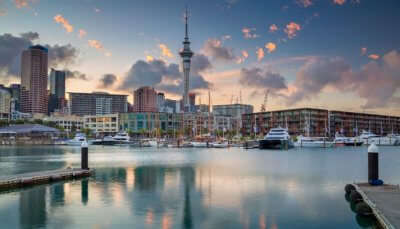
Travellers from across the world had been waiting for a long to wander amid mystic escapes of New Zealand, and with news of the reopening of the country, there is a spree of excitement among those who wish to plan holidays here. However, the country has ensured strict rules to guarantee a safe travel experience for all visitors.
New Zealand International Airport will be opened for commercial flights from the permitted countries. However, the authorities have released a list of travellers who need to deposit vaccination certification:
- A traveller who is not a citizen or resident of New Zealand.
- A traveller who is an Australian citizen living in New Zealand.
The following travellers will be exempted from submitting the vaccination proof:
- A visitor who possesses a New Zealand residence class visa.
- A visitor is an Australian citizen living in New Zealand.
- Any child aged below 16 years.
- A visitor who cannot be vaccinated due to medical reasons. In such a case, you need to produce electronic or paper evidence from a certified health practitioner.
Tourists are expected to remain conscious of the measures and follow them to ensure a safer environment. The following are guidelines by the health department of New Zealand:
- Wear face masks to protect yourself and others from COVID-19, especially in poorly ventilated spaces and wherever it is hard to maintain physical distance.
- In case a traveller develops COVID-19 symptoms, get tested and follow mandatory quarantine until the test results are negative.
- Visitors must upload all the necessary documents on the online portal and complete the procedures.
- Most travellers need to be vaccinated and take 2 rapid antigen tests (RATs) after arriving in New Zealand.
New Zealand In Winter: Know How To End 2022 On A Perfect Note With This Guide!
Best Time To Visit
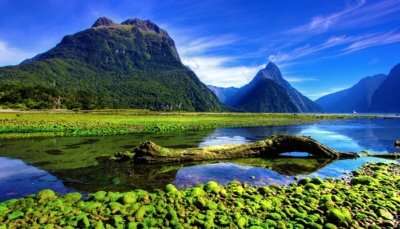
New Zealand is among those enchanting places in the world that surprise visitors with its awe-inspiring beauty throughout the year. You can enjoy diving all year round, however, if you wish to witness crystal clear weather conditions and visibility then you can plan a visit between December to March.
How To Reach
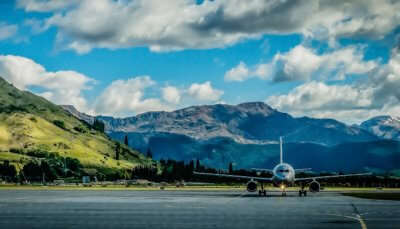
The quickest and most convenient way to reach New Zealand is by air. The New Zealand International Airport is located on the outskirts of the capital city and has connectivity all over the world. If you are travelling from India then you can take a direct or indirect flight from Delhi or Mumbai to Auckland which takes nearly 16 to 38 hours. Travellers from India do not require a visa to enter New Zealand, however, a valid passport will be required.
Exploring Best Of New Zealand On A Friends And Family Trip
Getting Around
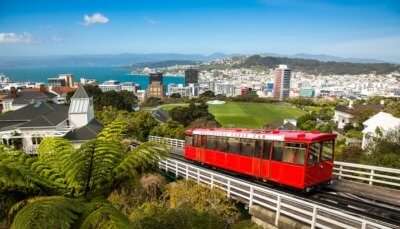
Regarding the transfers within the country, as per the latest updates, public transports are available and working regularly. The best way to transfer within the country can be done through public transport. Buses are the prime form of public transport, you can also trains and ferries.
If you wish to travel between the islands then you can prefer to take a ferry. Numerous passenger and private ferries serve connectivities between the North, South and other islands. A rail journey in New Zealand makes you capture spectacular vistas and is counted as a great way to explore the country.
The following are the important points to be kept in mind while getting around in New Zealand during Covid:
- Tourists must carefully follow the instructions provided by the operator during transportation.
- It is mandatory to maintain physical distance.
- Travellers who are taking domestic flights to other islands must follow the health protocols provided by the authorities.
Places To Visit In New Zealand During Covid
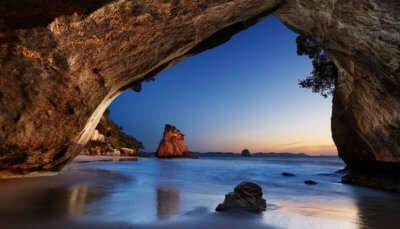
You can visit the major tourist destinations including the Bay of Islands, Tongariro National Park, Rotorua, Auckland, Coromandel Peninsula, Queenstown, etc. while holidaying in New Zealand. Arthur’s Pass National Park is known for being home to enormous peaks and deep valleys. You can add it to your itinerary and indulge in explorations. Cape Reinga and Ninety Mile Beach of the North Island feature panoramic sea views and are ideal to plan beachy getaways. Whereas, the native Maori culture pervades all the parts of the country.
Things To Do In New Zealand During Covid
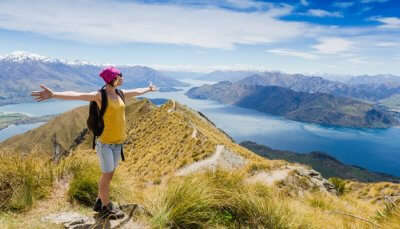
Currently, bodyboarding down the giant sand dunes, sailing in the Bay of Islands, climbing the volcanic island, tasting some of the finest wines, hiking to the highest volcanic cone, kayaking around Cathedral Cove, etc. are some of the best activities to indulge in. You can easily maintain social distancing while undertaking these activities and apart from these you can also explore hot water beaches, explore Hamilton Gardens, stay at Hobbiton, or visit the Glowworm caves.
Accommodation
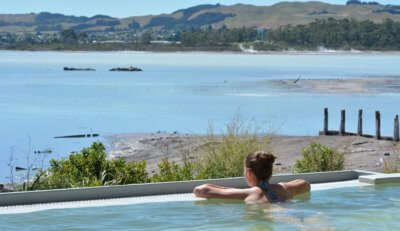
There are no specifications released as per the accommodation and staying alternatives. However, travellers can stay at the properties certified by the Public Health Authority. Make sure that you have the required documents to ensure that you are safe and there are no chances of transmission of any kind of virus. Be cautious towards maintaining hygiene, social, and physical distance.
20 Best Beaches In New Zealand For A Lazy Romantic Holiday
Restaurants
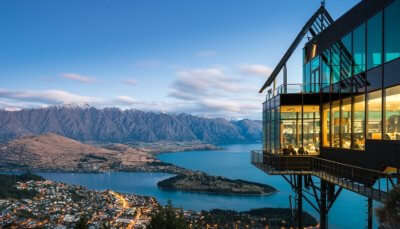
The restaurants, cafes, clubs, pubs, etc. are open as usual. Safety guidelines are followed to ensure a safe ambience. If you are planning for a meal outside then make sure that you book a table in advance.
What To Pack
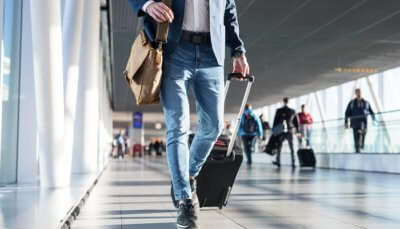
This post covid travel guide to New Zealand travel is incomplete without detailing the list of things that you might need on your upcoming holiday:
- Pack your usual medicines in case you are undergoing any medical treatment and do carry your prescription.
- Do carry a first-aid kit.
- Don’t forget to carry extra masks, disposable gloves, and sanitisers.
- Check the weather forecast to pack accordingly.
- Do carry your slippers, sunscreen, swimwear, and sunglasses.
Auckland Nightlife: Top Party Places In The City To Dance The Night Out
Travel Checklist

- Book your flights and hotel in advance.
- Make sure that you meet the necessary requirements by the authorities and fill online health declaration along with the necessary documents on the official website of New Zealand tourism.
- Keep your vaccination certificate handy as proof to submit on arrival in New Zealand.
Covid-19 Prerequisites And Consequences In New Zealand
- Apply for a visa in advance with all the required documents.
- Upload the required documents and carry the necessary copies along with you.
- The thermal screening will be done at the entry points.
- On showing any positive symptoms of Covid, the traveller will have to undergo testing.
- In case of testing positive, the travel will have to undergo 7-day of mandatory isolation and will be tested accordingly.
Ski In New Zealand: 10 Places Every Adrenaline Junkie Must Visit At Least Once!
Further Travel Tips
Here are a few important travel tips before concluding this post-covid travel guide to New Zealand that might help you in having a safer experience:
- Wear your mask in public places.
- Carry extra sanitisers, disinfectants, masks, and gloves.
- Follow social distancing.
- Try avoiding crowded areas.
- Get yourself tested once you return back.
Plan your holiday to New Zealand with TravelTriangle and have a memorable experience with your loved ones! Don’t forget to keep this post-Covid travel guide to New Zealand handy for a comfortable and stress-free experience.
For our editorial codes of conduct and copyright disclaimer, please click here .
Frequently Asked Questions about Post-covid Travel Guide to New Zealand
Is self-isolation required upon arrival in New Zealand?
No, self-isolation is not required, however, you need to present your vaccination certificates and rapid tests would be conducted upon arrival. In case of positive results, you need to quarantine for 7 days.
Can I get a visa on arrival in New Zealand?
No, if you are travelling to New Zealand from India then you need to apply for the visa in advance.
Is it safe to visit New Zealand in the upcoming months?
Yes, New Zealand is expected to open for visitors from the last week of July. Make sure that you follow all the safety travel guidelines by the authorities to ensure a safe experience.
People Also Read:
Post-Covid Travel Guide To Seychelles Post-Covid Travel Guide To Thailand Post-Covid Travel Guide To Germany
Recent Posts

Get Ready For The Ultimate Retail Adventure By Shopping In Queenstown!
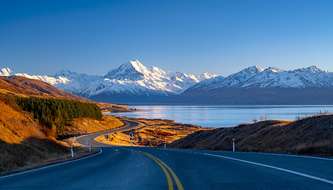
Famous Landmarks In New Zealand – A Journey Through Time And Culture
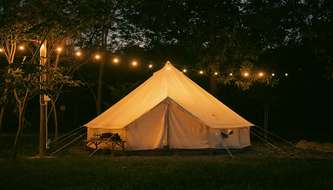
Top Camping Site In Auckland That Will Blow Your Mind
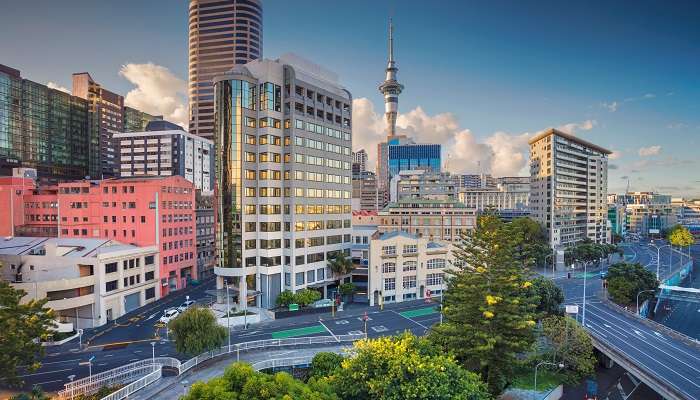
23 lieux à visiter en Nouvelle-Zélande qu’il faut visiter en 2023
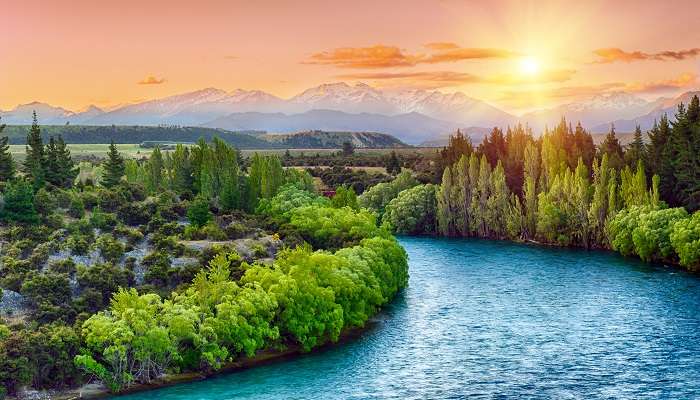
Discover The 8 Best Cities To Visit in New Zealand
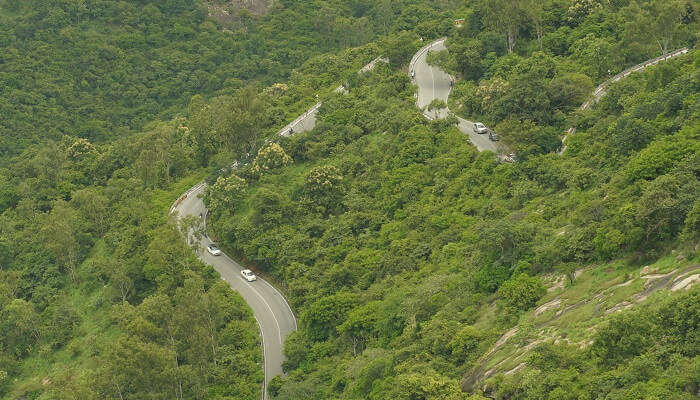
Bangalore to Goa Road Trip: A Comprehensive Guide For Your Next Getaway
Trending Blogs
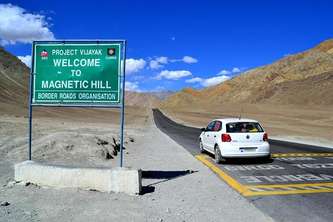
20 Mysterious Places In India To Visit In 2023 More Bizarre Than The Bermuda Triangle
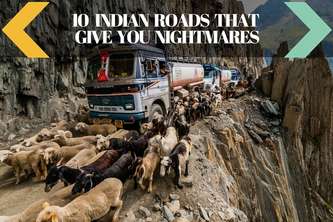
10 Scariest Roads In India That Are A Driver’s Nightmare
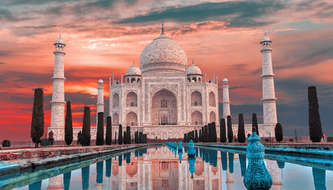
101 Places To Visit In India Before You Turn 30 in 2024
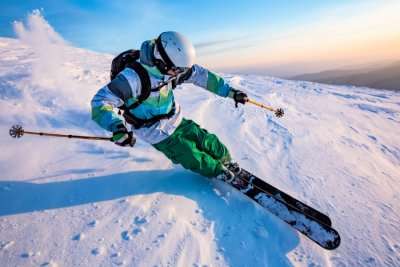
35 Exotic Places To Visit In December In India 2024 To Enjoy A Surreal Vacation

60 Best Honeymoon Destinations In India In 2024

95 Best Honeymoon Destinations In The World In 2023 For A Romantic Escape!
Best Places To Visit In India By Month
Best places to visit outside india by month.
- TravelTriangle
- International
- New Zealand »
- Tour Packages
- Honeymoon Packages
- Family Packages
- Budget Tour Packages
- Luxury Tour Packages
- Adventure Tour Packages
- Group Tour Packages
- Maldives Tour Packages
- Bali Tour Packages
- Dubai Tour Packages
- Singapore Tour Packages
- Thailand Tour Packages
- Europe Tour Packages
- Sri Lanka Tour Packages
- Tour Packages From Delhi
- Tour Packages From Mumbai
- Tour Packages From Bangalore
- Tour Packages From Chennai
- Tour Packages From Kolkata
- Tour Packages From Hyderabad
- Tour Packages From Ahmedabad
- Thailand Tourism
- Bali Tourism
- Singapore Tourism
- Maldives Tourism
- Mauritius Tourism
- Dubai Tourism
- Europe Tourism
- Hotels in Thailand
- Hotels in Maldives
- Hotels in Mauritius
- Hotels in Bali
- Hotels in Dubai
- Hotels in Singapore
- Hotels in Sri Lanka
- Environment
- Perpetual Planet
History & Culture
- History & Culture
- History Magazine
- Mind, Body, Wonder
- Paid Content
- Terms of Use
- Privacy Policy
- Your US State Privacy Rights
- Children's Online Privacy Policy
- Interest-Based Ads
- About Nielsen Measurement
- Do Not Sell or Share My Personal Information
- Nat Geo Home
- Attend a Live Event
- Book a Trip
- Inspire Your Kids
- Shop Nat Geo
- Visit the D.C. Museum
- Learn About Our Impact
- Support Our Mission
- Advertise With Us
- Customer Service
- Renew Subscription
- Manage Your Subscription
- Work at Nat Geo
- Sign Up for Our Newsletters
- Contribute to Protect the Planet
Copyright © 1996-2015 National Geographic Society Copyright © 2015-2024 National Geographic Partners, LLC. All rights reserved
Nomadic Matt's Travel Site
Travel Better, Cheaper, Longer
The Cost of Traveling New Zealand
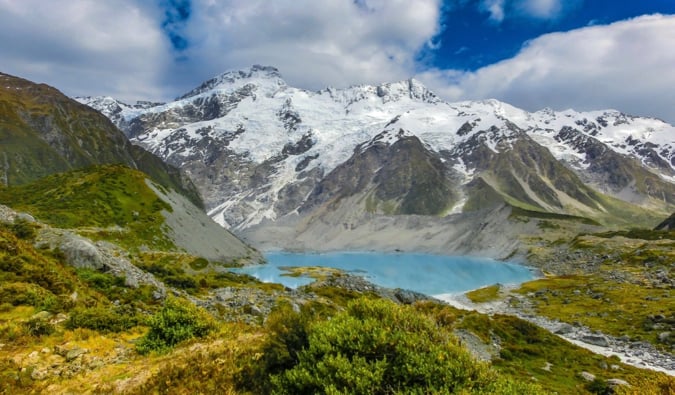
New Zealand . The land of Middle Earth, Great Walks, kiwis, backpackers, adventure sports, delicious wine, and pristine remote landscapes.
It’s also a land that sucks all your money from your wallet like a giant vacuum.
I first visited New Zealand over a decade ago. The country was so much more expensive than I thought it would be. Back then, I was a cheap(er) backpacker and focused on saving as much money as I could. I cooked most of my meals, hitchhiked, skipped all the costly adventure sports, and drank a diet of cheap boxed wine and happy hour beer.
But, on my most recent visit, I changed my MO. I was going to say yes to everything — regardless of cost.
I wanted to really know how much money you need in New Zealand for a variety of budgets.
What does it cost to be a broke backpacker? A mid-range traveler? Or a mix of the two?
What if you want to eat out a lot but also hike or sleep in a van? What if you want to do all the adventure activities in the world?
What if you just let the tab pile up?
So I became the Nomadic Matt of many budgeting hats. And, in the process I learned a lot about, the true cost of traveling New Zealand . Let’s break it down.
Table of Contents
How Much Did I Spend in New Zealand?
How much does new zealand really cost, how to save money in new zealand.
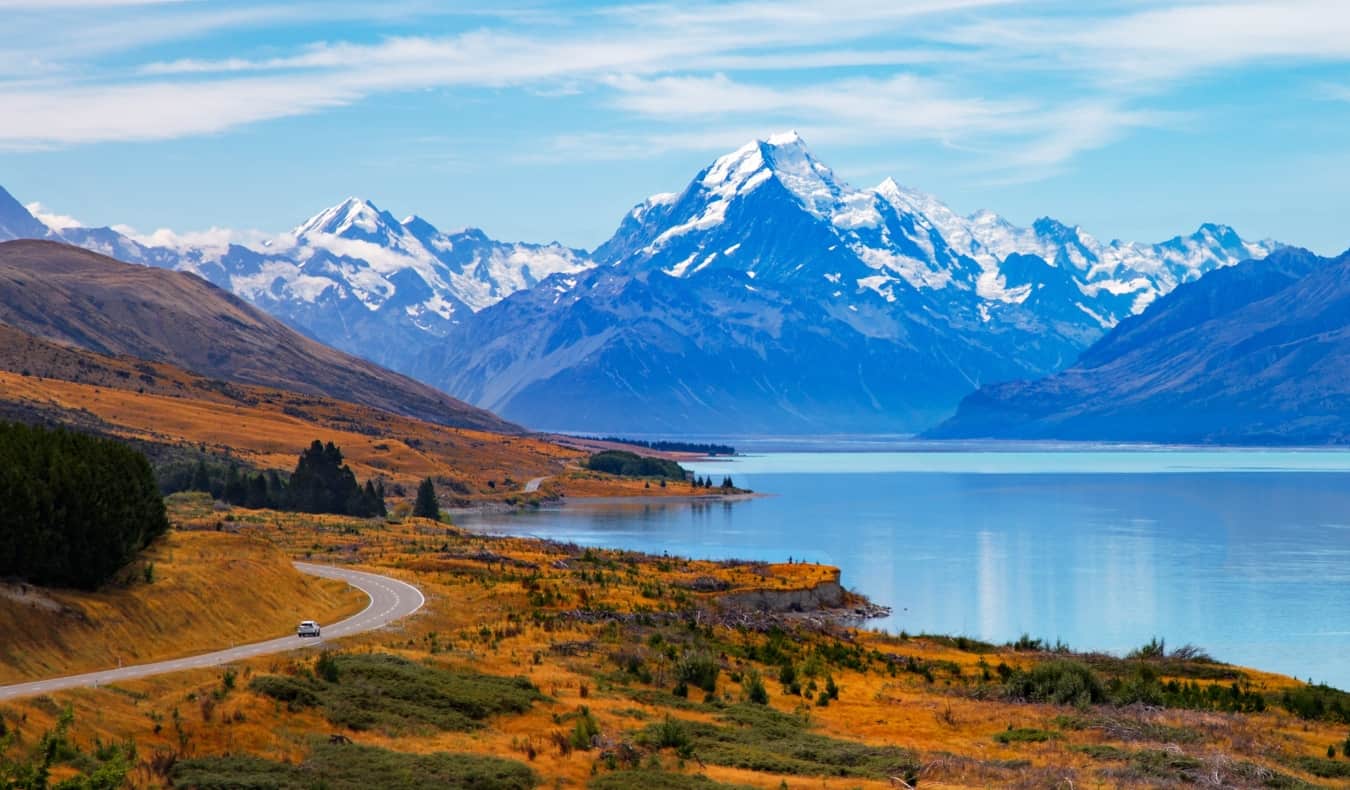
That’s a lot of money. Like holy hell a lot of money! Way more than my $50 USD a day guideline .
Here’s how my spending broke down:
- Accommodations: 913.64 NZD (36 NZD/day)
- Spark phone service: 164.68 NZD (6.50 NZD/day)
- Pharmacy: 39.98 NZD (1.60 NZD/day)
- Internet: 15.29 NZD (.60 NZD/day)
- Groceries: 235.52 NZD (9.40 NZD/day)
- Transportation: 1,014.32 NZD (40.50 NZD/day)
- Activities: 823.65 NZD (33 NZD/day)
- Restaurants: 1343.82 NZD (53.70 NZD/day)
Total: 4,550.90 NZD (182 NZD/day)
I spent a lot of money, but, again, I said yes to everything. I knew that taking scenic planes, trains, and helicopter rides; staying in private rooms, and meals out were going to cost a lot of money.
But even I was surprised by how much I spent when I wasn’t tracking my spending.
Looking back, there were plenty of things I could have done to lower my costs.
For example, I could have saved money by eating out less or by booking less expensive Airbnbs instead of hostel private rooms (which are always a terrible deal but I wanted to be around other travelers).
With a lot of ground to cover, I couldn’t always spend a day on a bus so flying really increased my costs. Additionally, the scenic rail I took (while awesome) was also 159 NZD! And transportation to Stewart Island was 160 NZD!
And I definitely blew through way too much phone data. As a person not used to data limits, being data-limited at hostels was new territory for me as I tried to stream Netflix. I picked up the slack on my phone by just ordering more data and not really thinking about it. (This won’t be an issue next time I go back, as unlimited Wi-Fi is standard in most hostels now.)
If I was slightly more conscious about my dining, accommodation, and spending habits, I easily could have cut 30 NZD or more per day from my budget.
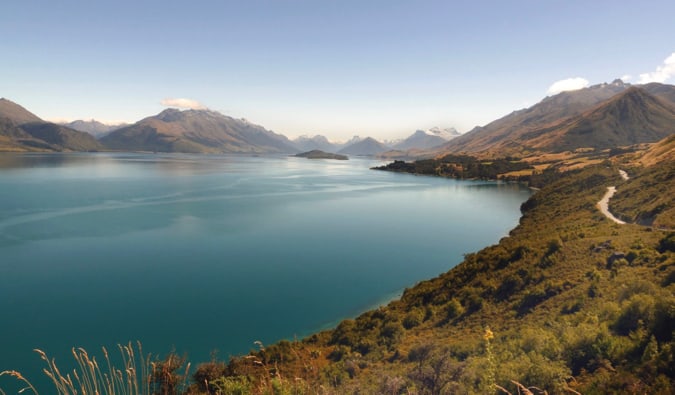
A more “I want to do a lot but still keep things affordable” budget of around 150-225 NZD per day gets you private rooms from Airbnb, a large number of activities (I let no winery go unvisited!), the occasional flight, and restaurant meals about 70% of the time.
If you’re going on a backpacker’s budget, I’d say you need around 70-95 NZD per day. That gets you a hostel dorm room, bus transportation, happy hour drinks, one or two expensive activities (bungy jumping, skydiving, etc.), and self-cooked meals.
If you are going to rent a campervan or self-drive, you could knock 15-25 NZD daily off your budget since your van will act as accommodation too. However, gas prices have risen and fluctuate often so be sure to factor this into your budgeting.
On an even tighter budget, with Couchsurfing, hitchhiking, few if any activities, and cooking 90% or more of your meals, you could get by on 50 NZD per day. It’s not easy to do but I met travelers who did it. It requires a lot of discipline though.
Here are some sample costs:
- Spark Phone plan (with 4.5 GB of data) – 50 NZD (20 NZD with 1.5 GB of data)
- Buses booked far in advance – 30-60 NZD per ride
- Buses booked last minute – 60-100 NZD
- Airfare – Varies wildly but you’re looking at least 50 NZD each way for a domestic flight (double or more if booked last-minute)
- Scenic trains – 99-219 NZD each way
- Full-day Bay of Islands cruise – 135-160 NZD (90 NZD for half-day)
- Hobbiton tour – 82-89 NZD
- Nevis Bungy – 290 NZD
- Franz Josef Glacier Guides Heli Hike – 360-535 NZD
- Waitomo glowworm caves – 61-265 NZD depending on if you walk, raft, or abseil
- Hostel dorms – 25-40 NZD per night
- Hostel private rooms – 80-100 NZD per night
- Airbnb – 65-85 NZD for a private room, 120-150 NZD for an entire apartment
- Wine tours – 85-225 NZD
- Drinks – 9-11 NZD for a beer, 12-15 NZD for a glass of wine, 13-18 NZD for a cocktail
- Casual restaurant meal – 20-25 NZD
- Fast food meal – 14-20 NZD
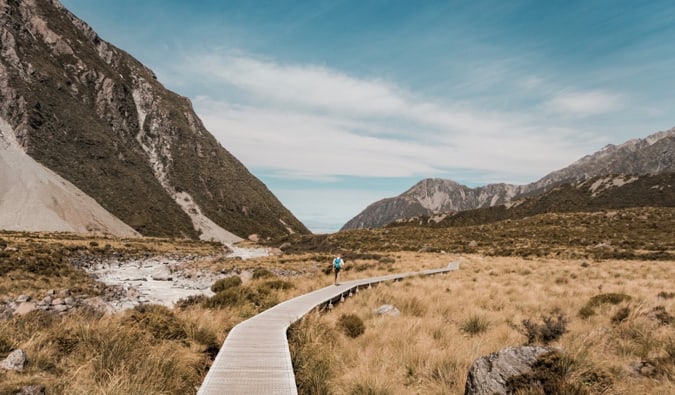
I mean, a heli-hike in Franz Josef can be upwards of 500 NZD! That’s CRAZY! Moreover, with most meals costing 20-30 NZD, your budget is going to be gone quickly if you eat out a lot (food represented 34.7% of my total spending).
New Zealand’s groceries weren’t that expensive (it’s an agricultural country after all), and there are a lot of free hikes to replace those expensive activities. Taking advantage of these should help lower your costs substantially.
When I was in Wanaka , I only spent around 50 NZD each day (30 NZD for my dorm, 20 NZD for food and drink, and 0 for activities since nature was free!). It can be done.
Simply put, New Zealand doesn’t have to be expensive if you don’t want it to be. After all, if it was, so many backpackers wouldn’t come here in droves.
I mean, how many hordes of backpackers go to Norway ? Not a lot! Why? It’s expensive unless you camp the whole time. New Zealand has a middle ground. It’s whatever it is you want it to be.
Here are some tips to help you save money while there:
1. Cook (a lot) – I know this is going to sound crazy, and I can already hear the comments coming, but the food scene in New Zealand isn’t that mind-blowing. Yes, there are nice cafés, some hip gastronomy, and really delicious meals, but nothing that’s so mouth-wateringly delicious you have to blow your budget on it. I never walked away going “That was a meal I couldn’t get at home! I’m glad I just spent sixty bucks!”
No. In fact, my biggest regret is that I spent so much on food. I should have cooked a lot more. I feel like I wasted a lot of money not doing so. I probably could have saved about 800 NZD by cooking more and, honestly, I don’t feel like I would have missed anything too great.
A week’s worth of groceries will set you back between 65-85 NZD. The cheaper supermarkets are Pak’nSave and Countdown.
So, cook as much as possible. You’ll save a ton of money.
2. Choose your tours wisely – Tours cost a lot of money in New Zealand. Going on just a few is enough to bust any budget and send you home before you had planned. Pick the ones you really want to do and save the rest for another trip.
3. Hit happy hour – The backpacker bars have cheap happy hours — take advantage of them. You can also use the app Get Happy to find cheap happy hours in Auckland, Wellington, Christchurch, and Queenstown. If you plan on enjoying a few drinks during your trip, be sure to use this app to save money!
4. WWOOF it – WWOOFing is a way to get free accommodation and food in return for working on a farm or in a B&B. You can do it for a few days or a few months. It’s a popular activity with travelers because it allows you to travel cheaper and for longer.
Keep in mind though that most farms require you to have some experience, as too many inexperienced workers have caused them trouble in the past.
5. Work at a hostel – Many hostels let you trade a few hours of cleaning and making beds for free accommodation. Ask when you check in if this is possible — it might just save you some money! Worldpackers is a great resource for finding opportunities as well.
Additionally, you can also check Backpackerboard.co.nz for temporary paying gigs.
6. Rideshare – Rideshares are a popular transportation option for travelers looking to lower costs — all you need to do is chip in for gas. You can find rides on websites like Craigslist , CoSeats , and Carpool World .
Additionally, you’ll see people asking/offering rides on hostel bulletin boards.
7. Couchsurf – While there are not a ton of Couchsurfing options in the country, there are hosts in all of the major cities. If you don’t mind sleeping on a couch or floor, this is not only a great way to save money on accommodation but you get to meet some amazing locals too.
(Don’t just use this as a free hotel though; it’s a cultural exchange. If you don’t want to interact with your hosts, don’t use this site.)
8. Hitchhike – Hitchhiking is easy in New Zealand. Besides Iceland , it’s probably the easiest country in the world to hitchhike in. There are plenty of people who will pick you up. Additionally, you can just ask around any hostel and find a ride — everyone is doing the same circuit. I got from Wanaka to Queenstown to Fiordland that way.
Between bulletin boards, the Couchsurfing app, the people you meet in hostels, and just thumbing it on the side of the road, you can always find a ride. Check out HitchWiki for more tips.
9. Take a free walking tour – Walking tours are my favorite way to get to know a place. There are a few free walking tours in New Zealand (usually in the larger cities) that offer visitors insight into each destination. Just be sure to tip your guide at the end!
10. Remember that nature is free – New Zealand, home to the Great Walks of the World, has tons of free outdoor activities. While adventure sports, wine tours, glacier treks, and boat cruises can eat into your budget, all the trails and walks are free. You can easily fill your day with free hikes, excursions to the lakes, or days on the beach!
And keep in mind the majority of museums in the country are also free!
11. Get a bus pass – I tend to buy transportation last minute so I never scored super discount fares, which is where bus passes come in. I bought an InterCity FlexiPass, which gave me 15 hours of travel. As of 2023, the pass costs 169 NZD.
I’d suggest this since the passes are hours based and last for an entire year. It will save you a lot of money versus booking last-minute tickets on the bus. Passes range from 10 hours (139 NZD) to 80 hours (641 NZD).
You can find out more on how to get around on a budget in this post. I list a lot of resources there.
12. Skip the backpacker buses – While they’re fun, backpacker bus tours like the Kiwi Experience are expensive! Best to avoid them if you are on a tight budget. If your budget isn’t so tight and you do want to check them out, be sure to sign up for their mailing lists first — there is always a sale on.
13. Use Book.me.nz – This website provides last-minute discounts on activities (and pub crawls) throughout the country. If you’re flexible about when you want to do things, you can save up to 60% off attractions and activities! I can’t recommend it enough. It saved me a lot of money.
14. Travel by campervan – Campervans are a win for budget-conscious travelers as they serve as both accommodation and transportation. New Zealand is especially suited to traveling by campervan, especially on the nature-heavy South Island where people hike and camp. Be sure to download the awesome Campermates app, which shows you nearby campsites, gas stations, and dump stations.
For even more savings, look into campervan relocation, where companies need to move vans from one location to another. As the driver, you’ll get steeply discounted rates and perks like extra days and free fuel for doing so. Check out Coseats and Transfercar to get started.
Saving money in New Zealand is about picking and choosing your battles. As you can see, when you just don’t care, costs can skyrocket. I made plenty of spending choices that drastically upped my daily average.
But if you get a bus pass, cook a lot of your meals, find rideshares, stick to Airbnb rooms (or split rooms with friends), or campervan it, New Zealand won’t be that expensive.
Just be sure to watch your budget!
Book Your Trip to New Zealand: Logistical Tips and Tricks
Book Your Flight Use Skyscanner to find a cheap flight. They are my favorite search engine because they search websites and airlines around the globe so you always know no stone is left unturned!
Book Your Accommodation You can book your hostel with Hostelworld as they have the biggest inventory and best deals. If you want to stay somewhere other than a hostel, use Booking.com as they consistently return the cheapest rates for guesthouses and cheap hotels. My favorite places to stay are:
- Nomads (Queenstown)
- Urbanz (Christchurch)
- Trek Global (Wellington)
If you’re looking for more places to stay, here is a complete list of my favorite hostels in New Zealand .
Don’t Forget Travel Insurance Travel insurance will protect you against illness, injury, theft, and cancellations. It’s comprehensive protection in case anything goes wrong. I never go on a trip without it as I’ve had to use it many times in the past. My favorite companies that offer the best service and value are:
- Safety Wing (best for everyone)
- Insure My Trip (for those over 70)
- Medjet (for additional evacuation coverage)
Looking for the Best Companies to Save Money With? Check out my resource page for the best companies to use when you travel. I list all the ones I use to save money when I’m on the road. They will save you money when you travel too.
Want More Information on New Zealand? Be sure to visit our robust destination guide on New Zealand for even more planning tips!
Got a comment on this article? Join the conversation on Facebook , Instagram , or Twitter and share your thoughts!
Disclosure: Please note that some of the links above may be affiliate links, and at no additional cost to you, I earn a commission if you make a purchase. I recommend only products and companies I use and the income goes to keeping the site community supported and ad free.
Related Posts
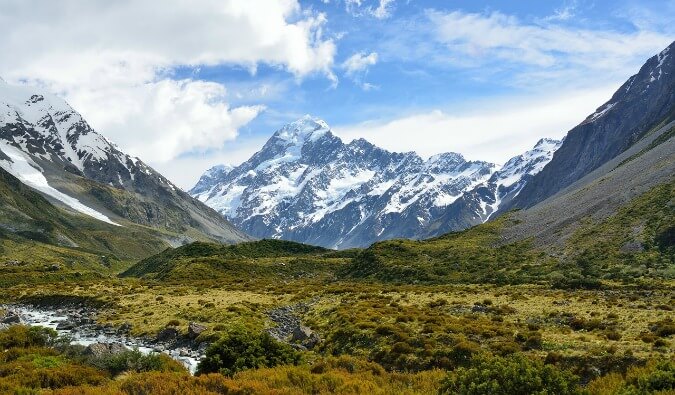
Get my best stuff sent straight to you!
Pin it on pinterest.

IMAGES
VIDEO
COMMENTS
After opening its borders to some 60 visa-waiver nations last Monday, New Zealand announced that it would drop its remaining border bans and open to the rest of the world on July 31, three months ahead of schedule. The country had taken steps in recent months to relax border controls, like allowing in New Zealanders living abroad, as well as visitors from neighboring Australia.
Phase 2 From 11.59 pm Sunday, February 13 2022, fully vaccinated Kiwis and other eligible travellers can travel to New Zealand from all other countries. Phase 3 From April 30 2022 onwards, all ...
The border will first open to New Zealand citizens and residents traveling from neighboring Australia on January 16, before expanding to include New Zealanders the rest of the world on February 13 ...
Alison Fox. Published on November 24, 2021. New Zealand laid out a phased reopening plan on Wednesday announcing the country will fully reopen its borders to international travelers in April of ...
The announcement is a major shift for New Zealand, which imposed some of the world's strictest border rules in a bid to shut out Covid-19. The country banned almost all foreign travelers in ...
After almost two years of closed borders and one of the strict approaches to the pandemic in the world, New Zealand has set its official reopening date of 30 April 2022 for fully vaccinated international travellers. According to Reuters, the Covid-19 Response Minister Chris Hipkins announced in a news conference earlier today that fully vaccinated international travellers would be allowed to ...
New Zealand is re-opening its borders ahead of schedule, over two years since they first closed to travellers. From 2 May, vaccinated tourists from the UK, France, Germany, US, and around 60 other ...
Getting around New Zealand. Whether you want to self-drive, fly, join a tour, or hop on a bus or train, there are plenty of options for getting around New Zealand. Find out what's best for you with our practical advice on travel and transport in New Zealand. Find more transport options >.
New Zealand intends to reopen its borders to vaccinated visitors without quarantine in early 2022, Prime Minister Jacinda Ardern announced on Aug. 12. Since closing her country's borders in March 2020, the New Zealand powerhouse prime minister has received international recognition and praise for her approach to handling the COVID-19 pandemic ...
New Zealand prepares to ease borders: What will overseas travel look like in 2022? The risk of a Delta outbreak means a relook at New Zealand's alert level settings, says Covid-19 Response ...
The vaccination rate in New Zealand needs to increase significantly. The COVID-19 cases in the U.S. will need to meet the currently unknown standards of a "low-risk country." Even with all of these variables, the mere fact that New Zealand is starting to consider opening back up to international travelers after almost 18 months of closed ...
Climate: New Zealand has a diverse climate determined by the ocean, mountains and prevailing winds. The mean average temperatures are 10°C (50°F) on the South Island to 16°C (61°F) on the North Island. See The Guide to The New Zealand Climate or check out the " When to Visit " section below. Population : 5 million.
Visitors must upload all the necessary documents on the online portal and complete the procedures. Most travellers need to be vaccinated and take 2 rapid antigen tests (RATs) after arriving in New Zealand. New Zealand In Winter: Know How To End 2022 On A Perfect Note With This Guide!
In winter, the reappearance of the Matariki constellation in the night sky heralds the beginning of the Māori New Year, a period of reflection and revelry that will be officially recognised as a public holiday for the first time this year.From 21 June to 16 July, the entire country comes alive with communal feasts showcasing Indigenous cuisine, as well as art exhibitions, night markets and ...
The water is so clear and the beach is untouched - more people should know about it because it's so beautiful. The best part is that even during the busiest times of the year, you'll find very few people in New Chums. It's one of New Zealand's best kept secrets.". New Zealand is full of incredible things to do.
Sarah Baxter 12 September 2022 • 11:54am. New Zealand's dramatic landscapes are a huge draw Credit: Getty. Tourists will no longer need to be vaccinated in order to visit New Zealand, as the ...
It has white snow capped mountains, creaking glaciers, silent lakes, thunderous waves, black sandy beaches and smoking volcanoes - almost everything that makes a picturesque paradise. Currency in New Zealand: New Zealand Dollar | 2022 Conversion Rate: 1 NZD = $0.58 USD.
New Zealand-resident traveller arrivals overall were down 30,800 from October 2022 (206,300). School holidays in New Zealand were in October 2022. The November 2022 number of New Zealand-resident traveller arrivals is 75 percent of the pre-COVID-19 number of 233,700 in November 2019. Of the 175,500 New Zealand-resident arrivals in November 2022:
Ini Yang Anda Perlu Tahu - Surga Route. Dah Boleh Travel ke New Zealand. Ini Yang Anda Perlu Tahu. Pada 1 Ogos baru ini, New Zealand mengumumkan sempadannya dibuka sepenuhnya buat kali pertama sejak Mac 2020. Bagi warga New Zealand, sempadan mula dibuka semula pada Februari 2022, dan sekatan telah dilonggarkan secara beransur-ansur.
Welcome to New Zealand. Get official travel information, maps, itineraries, best time to travel & things to do to help you plan your next holiday to New Zealand.
Restaurants: 1343.82 NZD (53.70 NZD/day) Total: 4,550.90 NZD (182 NZD/day) I spent a lot of money, but, again, I said yes to everything. I knew that taking scenic planes, trains, and helicopter rides; staying in private rooms, and meals out were going to cost a lot of money. But even I was surprised by how much I spent when I wasn't tracking ...
62-21 422 3838. 62-21 422 3888. atau online form yang kami sediakan melalui tombol dibawah ini. CONTACT US. paket tour ke australia & new zealand,Indonesia leading tour and travel agency, travel agent in Jakarta providing domestic Indonesia and international airlines tickets, hotels, tours arrangements, incentives, corporate travel, visa and ...
Made famous by the dramatic, unearthly scenery in Lord of the Rings, New Zealand is more than just an unbelievable movie set. Travelling in New Zealand is every outdoor enthusiast's dream. Made up of two islands, your adventures are infinite. The two islands do stand in noticeable contrast to each other.